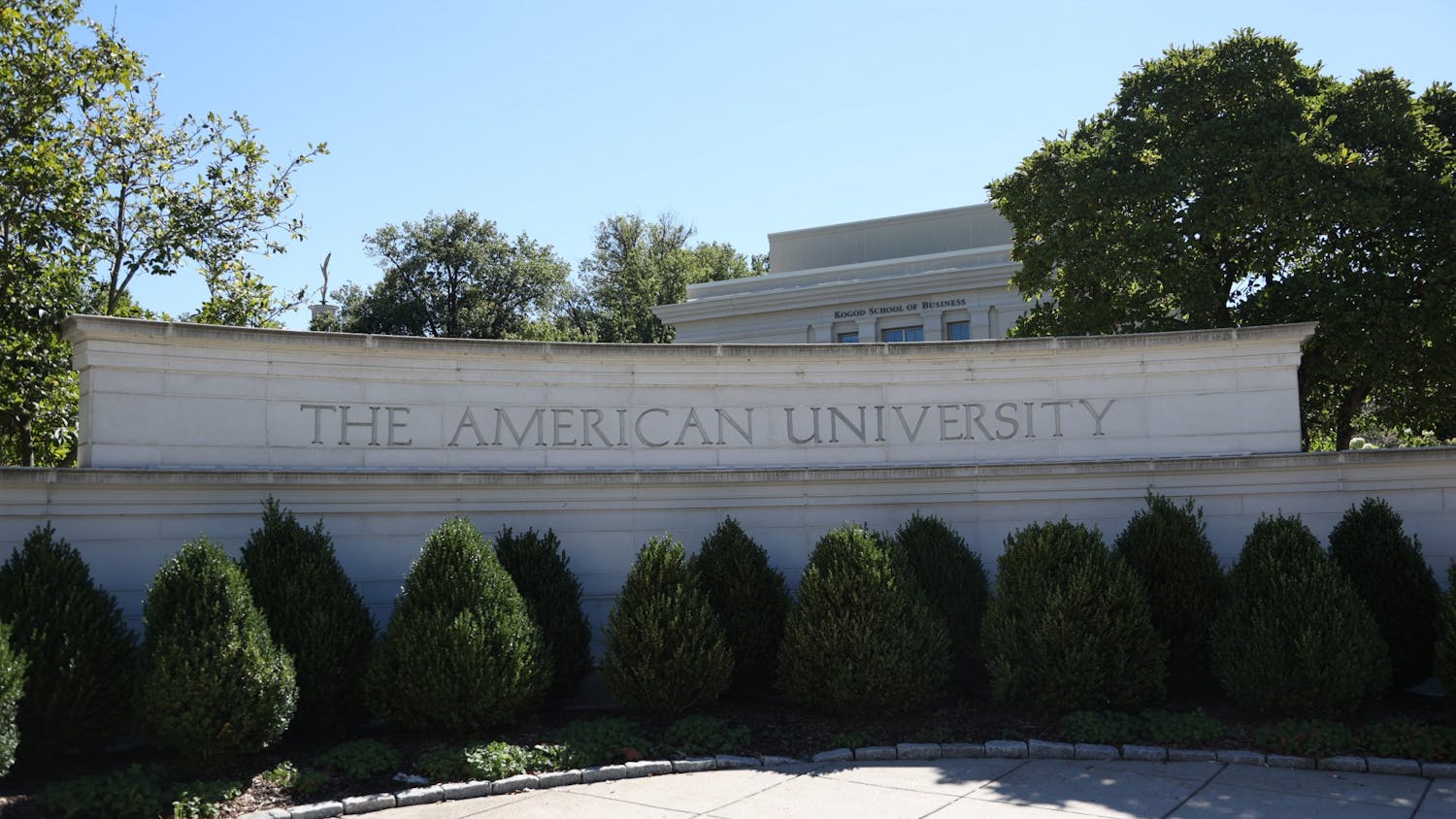On Thursday, David Kay, former United Nations weapons inspector in Iraq, gave advice to AU students about what he called "a remarkable period of time we're entering." Kay, who began his government career as a special assistant to the U.S. Ambassador to the U.N., told students that the United States is about to go through what is only the second fundamental transformation in the paradigm of looking at national security and terrorism.
"Security of the American nation cannot be maintained if in fact we did not concern ourselves with the international world," Kay said.
Kay spoke to AU in Ward 1 as part of the Artemas Ward festival, an annual spring celebration sponsored by the Student Confederation, AU's student government. The College Republicans, Kennedy Political Union and Graduate Leadership Council sponsored the speech.
According to Kay, the world we live in now is a lot more difficult than the world our parents and grandparents lived in.
"I would suggest that this is something that your parents, your grandparents never had to worry about in previous national security paradigms," Kay said. "The war was always going to be, if we were lucky, over there."
The United States has had great advantage in wars because it is surrounded by great distances from its enemies and is surrounded by water, according to Kay. This has given Americans a false sense of security.
Kay taught at AU when he first came to Washington. He was the head of the National Science Foundation Project.
"I have been lucky in my career .... One of the most important things you can learn in your undergraduate career is to not walk into your specialty early," Kay said.
After beginning his university career, Kay has since studied political economics and affairs. He began six months after Sputnik and said that his entire adult life has been devoted to the concern with either the Soviet Union or the remnants of the Soviet Union after it collapsed.
"The nice thing about the Soviet Union is that you could be wrong by 500 or 1,000 tanks, missiles, divisions, and it really didn't matter," Kay said. "The immense armaments that both we and the Soviets had provided an element of security and stability, which was frightening if that ever disappeared."
Delving into the issue of terrorism, Kay explained that Americans have had over 20 years of warning about terrorism. We are potentially entering is a world in which the national security paradigm is going to have to worry about terrorists and terrorists with weapons of mass destruction, according to Kay.
Kay also spoke about the recent thwarted terror attack in Jordan, where a truck with over 20 tons of explosives and chemicals was stopped by authorities coming from Syria. The intended victims were American targets in Europe.
Regarding the issue of Syria, Kay is suspicious of the fact that it may be harboring weapons of mass destruction.
Kay also introduced a set of guidelines as to how to deal with terrorism.
"When we come out of the university, we are trained on historical experience," Kay said. "The future is not what it once was."
Although terrorism has been around for over 30 years, we are now facing a new kind of terrorism. Now, terrorists want different regimes with an entirely separate ideology that is all their own, according to Kay.
"When 9/11 came along, the world suddenly shifted under our feet," Kay said. "The question you have to ask yourself now is if the fundamental capabilities of terrorists are starting to change."
Terrorists now have access to technologies that they never had before.
"Chemicals are becoming easier to make," Kay said. "Anthrax is a 70-year-old chemical that technology for it can be easily found on the Internet."
With the convenience of the Internet, terrorists can now organize themselves in chat rooms. According to Kay, terrorists groups now number in the thousands in geographically disperse areas.
Kay is the author of a book about the issue of modern terrorism called "Culture of Death."
"I have seen generation after generation of young men and women who have no hope and have adopted an ideology of 'I am I die,'" Kay said.
Kay also spoke of the poor education system in Lebanon and Saudi Arabia. Over 40 percent of the population in these countries is under 15, according to Kay. Because of the education system, many young people grow up thinking the only way to make their mark on society is to die a martyr.
"Those of you that have not gone abroad yet will face what is perhaps the greatest cognitive dissonance I have ever seen," Kay said.
Those in other countries seem to enjoy the same types of luxuries as Americans, yet many feel extreme revulsion towards all things Americans hold dear, he said.
According to Kay, the important issue is the interrelationship between the terrorist threat and the democratic values of American society.
"Values of privacy, feelings of diversity, freedom of association and freedom of choice are what makes America different," he said.
According to Kay, the terrorist threat is not over there, it is in fact here in the United States.
"In many ways, Afghanistan and the Taliban were bad lessons," Kay said. "We're able to say Taliban-bad state, Osama Bin Laden-bad guy."
"What we are facing today are terrorist groups that have penetrated and set up all around the world," Kay said. "Terrorism today as a global phenomena united with the criminal and the drug trade is not only everywhere...it is here."
"Terrorists have to be right only once," Kay concluded, echoing the words of President Bush. "People trying to prevent terrorism have to be right all the time"




